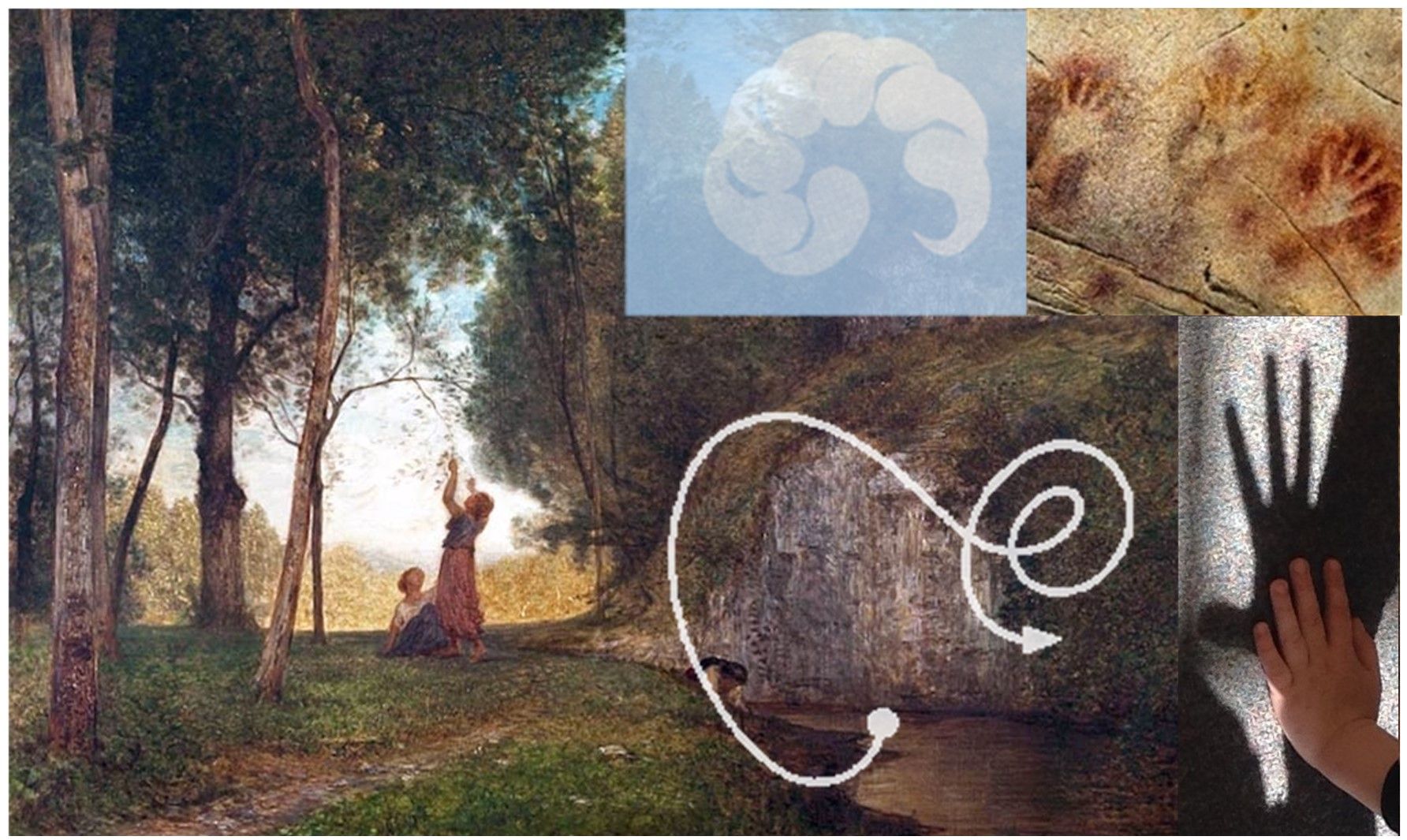Recordings Online
A growing collection of recodings which are available by special subscription to view online.
Sightlines Initiative Network members are eligible for 10% discount - please email
The collection is currently for individual subscription. We are working on group registration (for example a college class group.) In the meantime please email Robin (
Payment is by Paypal facility. Payments by debit card: you can utilise Paypal's 'guest checkout' option if you want to pay directly with a debit card (for example if you don't want to 'pay by Paypal.')
Online Conference set: narratives of the real and possible in shaping education
Three one hour + illustrated presentations
'Loris Malaguzzi's pedagogical influence and contemporary importance.' Professor Peter Moss, University College London
'How Does Learning Happen? - Ontario's vision for education’ Karyn Callaghan & Kelly Massaro-Joblin, Ontario Reggio Association, Canada
'Democratic alternatives in education: Provocations from the Portuguese Modern School Movement.' Dr. Diana Sousa, University College London
| Price: | £60 |
This session discusses a short history and principles of blockplay; what block play offers: reflecting on practice; a celebration of children’s wonderful ideas; practicalities of blockplay organisation.
Dr Deborah Albon is an Honorary Fellow of the University of Roehampton and writer.
Ann Bridges was formerly headteacher of a nursery school and consultant.
Solveig Morris was formerly a headteacher of a nursery and infant school, a local authority inspector for early years education and consultant. She is also a co-ordinator for London ReFocus – a regional network group of Sightlines Initiative.
Helen Tovey was formerly a headteacher of a nursery school and principal lecturer at the Froebel College, University of Roehampton. She is a Froebel travelling tutor and author of early years publications.
| Price: | £20 |
A free recorded introduction to our summer conference series investigating the shaping of education from ethics of relationship & listening.
This recorded session is a free introductory to the ideas which we will be exploring in the series. Discussants are Prof. Peter Moss, ioE; Robin Duckett, Sightlines Initiative; Greta Ellis & Cathering Reding, Kirkoswald Primary School; Louise Lowings, Madeley Nursery School; Rachel Oakshott-Evans, Growing Places Early Years Centres.
Education in England, including early childhood education, is increasingly narrow, instrumental and technical, subject to a culture of managerial accountability obsessed with targets, testing and readying, and that sees nurseries and schools as ‘outcome factories’. In the words of Sir Ken Robinson, “we are living with a construct of education based on an outdated model of training for an industrial, growth economy…capacity for divergent thinking deteriorates with schooling…children alienated, not engaged, lacking aesthetic experience." Changing Educational Paradigms
Emphasis is on the individual and on an educational norm of transmitting pre-determined information and skills from educator to child.
But other types of relationship are available. Great educators, such as Reggio Emilia’s Loris Malaguzzi, have built their education on the importance of groups, of dialogue and listening, of creativity and research, and of children and adults working together to co-construct meaning and empathy. Instead of a pedagogy of transmission and conformity, they have chosen a pedagogy of collaboration, conviviality, democracy and enquiry: this is the heart which will be exploring in our June - September conference series.
| Duration: | 1 Year |
| Price: | Free |
Reggio’s theory of interactivity and relations
Dr. Lorenzo Manera, Reggio Emilia, Italy
 The Reggio Emilia Approach is characterised by a relational aesthetics that find its roots in Deweyan philosophy and in phenomenological* reflections.
The Reggio Emilia Approach is characterised by a relational aesthetics that find its roots in Deweyan philosophy and in phenomenological* reflections.
| Duration: | 1 Year |
| Price: | £40 |
The humanness of conviviality in learning from children
Professor Colwyn Trevarthen, Edinburgh
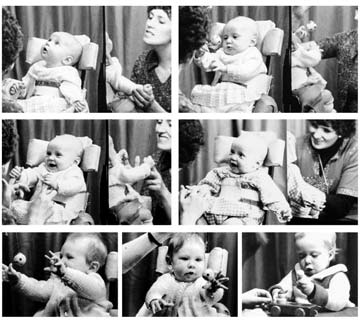 Abstract reasoning about the brain as an organ for 'cognition', just recording information, creates barriers to understanding of the playful and affectionate motives for learning in early childhood.
Abstract reasoning about the brain as an organ for 'cognition', just recording information, creates barriers to understanding of the playful and affectionate motives for learning in early childhood.
As teachers and parents we need to appreciate how, in every human community, impulses for play inspire rituals of artful creativity and their celebration, and to consider how the source of this imaginative vitality born in our children may be best supported. ... Does the ambitious world of adults searching for profits in knowledge and skills become toxic for the spirit of many children?
| Duration: | 1 Year |
| Price: | £40 |
Dividing the brain: the dimming of sensibility in the West
Professor Iain McGilchrist, UK
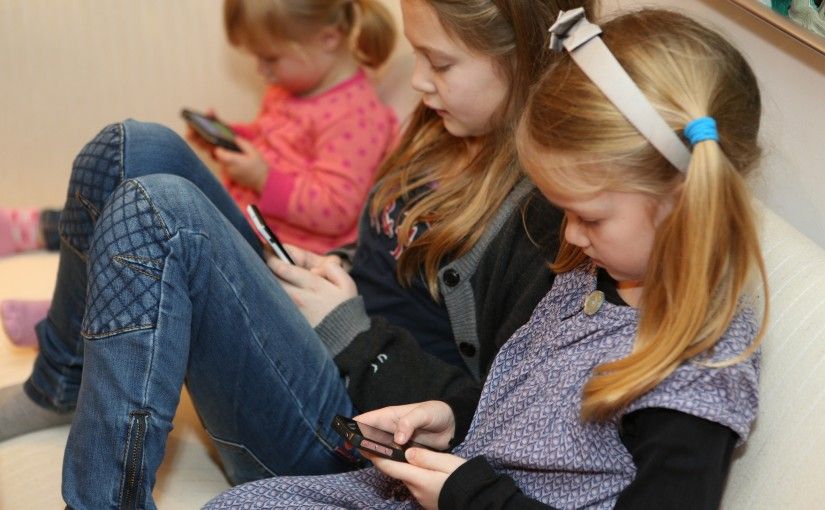 The real problem is inside our heads: we act like people with right hemisphere brain damage – treating people like things to be sorted, used, and thrown away, But there is an alternative, a more balanced way of thinking: we need to relearn how to use our brains before it is too late.
The real problem is inside our heads: we act like people with right hemisphere brain damage – treating people like things to be sorted, used, and thrown away, But there is an alternative, a more balanced way of thinking: we need to relearn how to use our brains before it is too late.
Beliefs about the differences between the hemispheres have passed into the popular consciousness. These beliefs could be characterised as versions of the idea that the left hemisphere is somehow gritty, rational, realistic but dull, and the right hemisphere airy-fairy and impressionistic, but creative and exciting. In reality, both hemispheres are crucially involved in reason, just as they are in language; both hemispheres play their part in creativity. Perhaps the most absurd of the popular misconceptions is that the left hemisphere, hard-nosed and logical, is somehow male, and the right hemisphere, dreamy and sensitive, is somehow female. ....
| Duration: | 1 Year |
| Price: | £40 |
Democracy in education: steps in reality
Harold Göthson & Malin McConnachie, Stockholm, Sweden
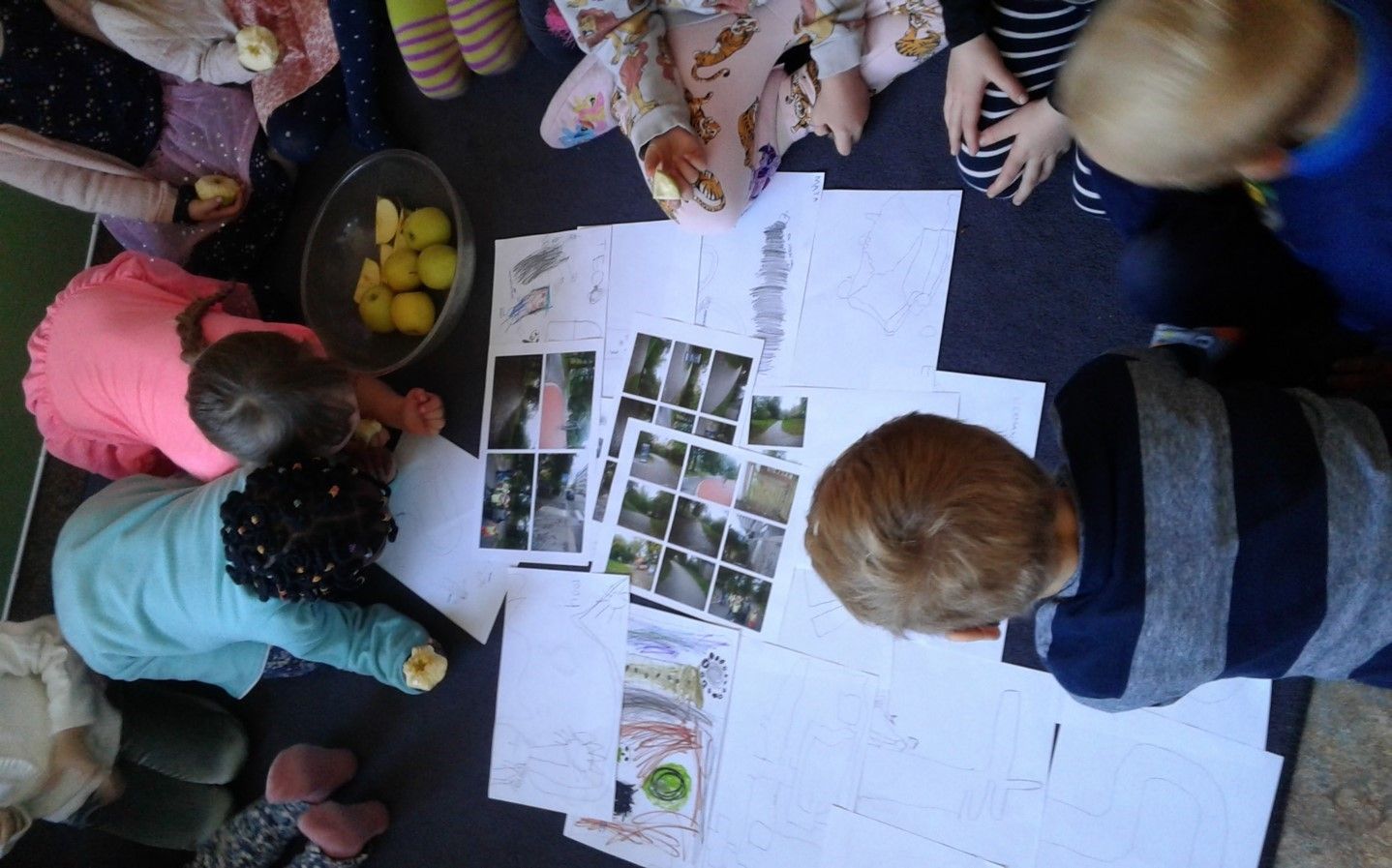 Harold Göthson introduces a current action-research publication from Sweden: We are interdependent on each other throughout our world - and all human life is connected to the health of our planet. It is something we are constantly reminded of in our time. In this, everyone can see themselves as insignificant or we can instead choose to become responsible and involved citizens. When we do that, and even if we disagree, we are helping to give new meaning to a democratic world citizenship. Our view is that this is necessary for a sustainable future.
Harold Göthson introduces a current action-research publication from Sweden: We are interdependent on each other throughout our world - and all human life is connected to the health of our planet. It is something we are constantly reminded of in our time. In this, everyone can see themselves as insignificant or we can instead choose to become responsible and involved citizens. When we do that, and even if we disagree, we are helping to give new meaning to a democratic world citizenship. Our view is that this is necessary for a sustainable future.
It is not obvious that all preschools function as a democratic meeting place and a resource for a sustainable future: that is why we emphasize that preschools can be democratic meeting places. Because it's easier said than done. It requires a long-term and persistent effort.
Democracy depends on a learning, educated citizen who is able to change in the face of new arguments. Exercising democratic citizenship requires training and skill. It requires a general education school for all. It requires an education where we learn to learn together even though we are different. In fact, democracy needs us to be able to interact with those who think differently.
Malin McConnachie lets us meet a group of children with three to five-year olds in a municipal preschool in central Stockholm. Children who have been allowed to create hypotheses, negotiate and test their ideas in an exploration based on the focus 'Sustainable Future' with a focus on ecology.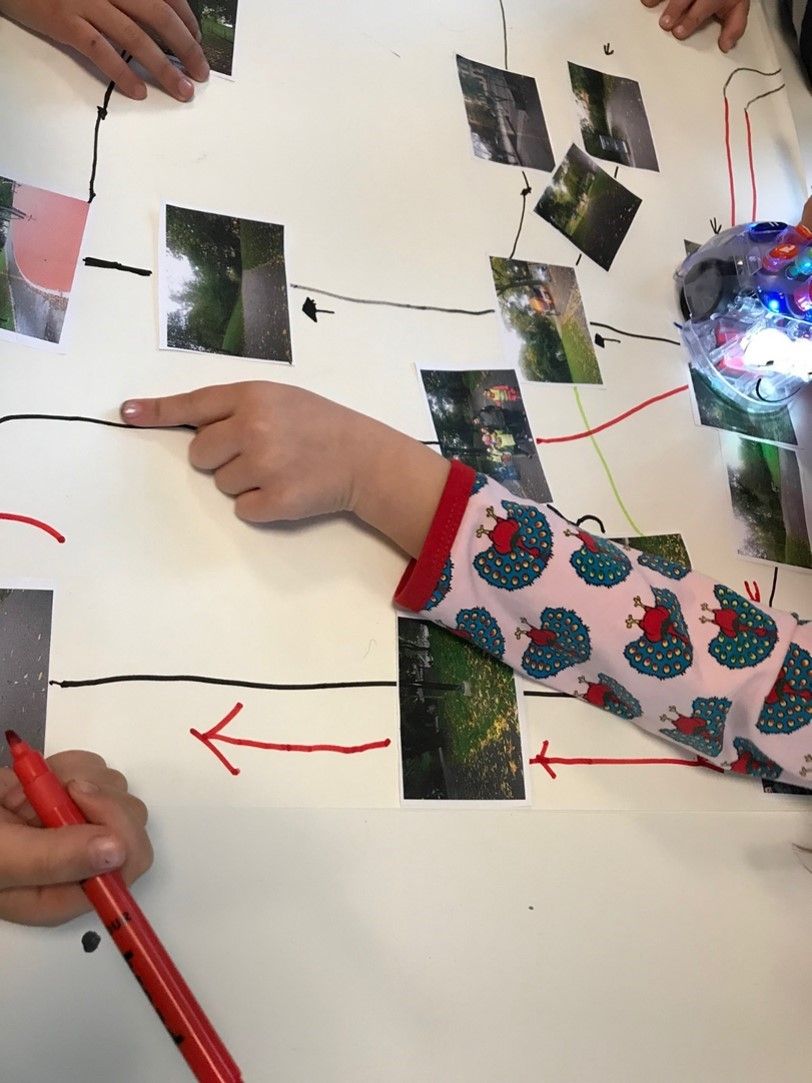 Malin shows how a reflective culture in project work with children can create conditions for children to "position themselves in the world as democratic citizens." Children depend on the teacher's ability to listen to and see the children's abilities. The narrative shows how teachers can work to connect democratic values in a dialogue with innovative theories, becoming more sensitive to children's rich ideas, and creating intelligent situations and a way of working where children can flourish.
Malin shows how a reflective culture in project work with children can create conditions for children to "position themselves in the world as democratic citizens." Children depend on the teacher's ability to listen to and see the children's abilities. The narrative shows how teachers can work to connect democratic values in a dialogue with innovative theories, becoming more sensitive to children's rich ideas, and creating intelligent situations and a way of working where children can flourish.
| Duration: | 1 Year |
| Price: | £40 |
Education for Happiness
Dr. Satish Kumar, UK
Education should involve educational head, educational, heart, and educational hands. At the moment, our education mainly is of head: thinking, analysing, information - knowledge a little bit, but mostly: ‘information.’ That should be complemented with experience, and experience comes by feeling: heart and by making: hands.
Young people were trained in whatever skills were required by the market. This was education for jobs rather than education for life. Any of the jobs for which the students were trained led to the demise in biodiversity and the increase of carbon emissions which cause climate catastrophe.The current educational system was designed to meet the needs of the Industrial Age - the age of mass production, mass consumption and unlimited economic growth.
We are entering a new era, an era of the environment. So we need a new system of education which can respond to our times and can help to develop a regenerative culture.
| Duration: | 1 Year |
| Price: | £40 |
Te Whariki: A woven mat which empowers the child
Dr. Lesley Rameka, Waikato, New Zealand
 The whāriki or woven mat is a metaphor for New Zealand's ECE curriculum, in which four curriculum principles are interwoven with five curriculum strands:
The whāriki or woven mat is a metaphor for New Zealand's ECE curriculum, in which four curriculum principles are interwoven with five curriculum strands:
|
EMPOWERMENT | WHAKAMANA |
WELLBEING | MANA ATUA |
Whāriki have symbolic and spiritual meaning for Māori. Weaving a whāriki takes knowledge, skill and time. It is almost always done collaboratively. In Māori tradition children are seen to be inherently competent, capable and rich, complete and gifted no matter what their age or ability. Descended from lines that stretch back to the beginning of time, they are important living links between past, present and future, and a reflection of their ancestors. These ideas are fundamental to how Māori understand teaching and learning.
In Te Whāriki children are positioned as confident and competent learners from birth. They learn by engaging in meaningful interactions with people, places and things – a process that continues throughout their lifetimes; they are valued as active learners who choose, plan, and challenge. This stimulates a climate of reciprocity, ‘listening’ to children (even if they cannot speak), observing how their feelings, curiosity, interest, and knowledge are engaged in their early
| Duration: | 1 Year |
| Price: | £40 |
Empathy, Curiosity and Creativity: introducing the work of Vasily Sukhomlinsky
Dr. Alan Cockerill, Brisbane
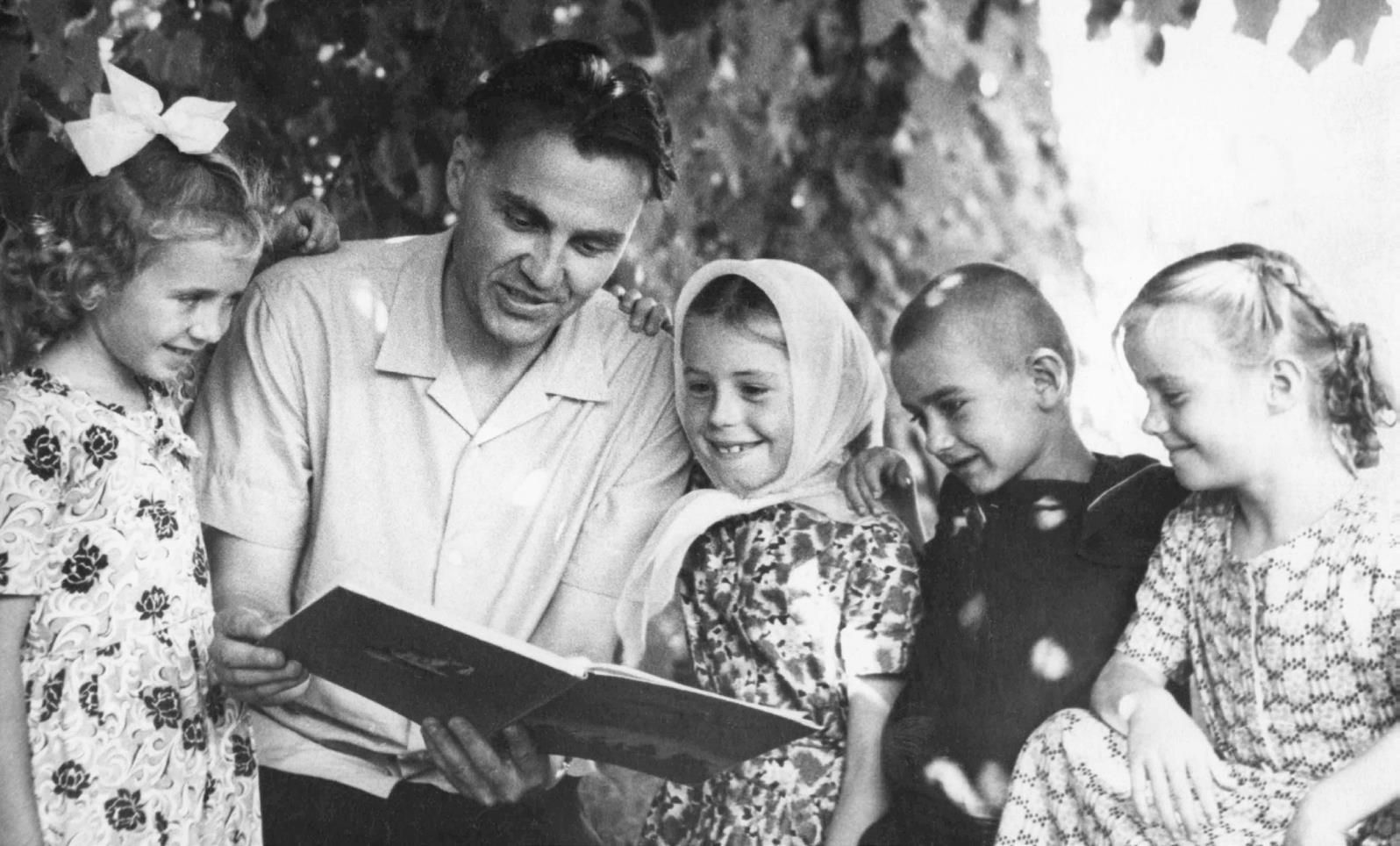
Vasily Sukhomlinsky was a Ukrainian school teacher. From 1948 to 1970 he was the principal of a combined primary and secondary school in the rural settlement of Pavlysh. His school was made famous through his many books and articles, which have been read by millions. Thousands of educators, from the length and breadth of the Soviet Union and beyond, travelled to see his school with their own eyes, and millions of educators around the world have been inspired by his example.
Sukhomlinsky was born in the middle of a civil war, and survived the famine known by Ukrainians as the Holodomor. He was nearly killed on the battlefield during the Second World War, and his first wife and child were brutally killed by a Gestapo officer, aided and abetted by local collaborators. He could easily have become an embittered man, but he found a catharsis for his suffering through his work as a teacher and his love for children.
Working in very difficult circumstances, he created a model school, and a holistic educational theory to support it. Those of you familiar with the educational philosohy of Reggio Emilia's Loris Malaguzzi will find much in common.
For two years before they join the compulsory school program, I work with little children in a preparatory group. I would call this period a school in curiosity. This is first and foremost an educator making contact with a child’s brain, which is so plastic and responsive during the preschool years. The main method employed in making this contact is to inspire children with wonder and amazement. The main instrument is a teacher’s words, and the main form of activity is excursions to the source of thought and language, in the midst of the inexhaustible richness of nature.
My aim is that a growing curiosity should become an autonomous force, governing the interests and aspirations of children.
If I manage to establish curiosity as an inextinguishable flame, I know that children will never lack ability.
| Duration: | 1 Year |
| Price: | £40 |


